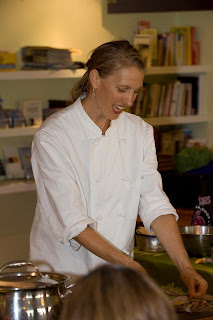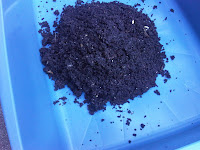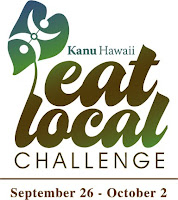

Vegan and Macrobiotic Cooking Classes in Honolulu, Personal Chef Services, Lifestyle Coach, Macrobiotic and Sustainable Living provided by Leslie Ashburn. Leslie is a community activist dedicated to social justice, food sovereignty, and food security in Hawaii. See her website at www.macrobiotichawaii.com for all the local cooking classes and other healthy living information.
 Mindy explained to me how to set up my system. First, I have to shred paper and place it into my composting bin.
Mindy explained to me how to set up my system. First, I have to shred paper and place it into my composting bin. Then, I take the pile of worms and separate it from the vermicast, sprinkling the vermicast onto the paper to make a nice bed for the earthworms. It's important to water it so that it stays moist.
Then, I take the pile of worms and separate it from the vermicast, sprinkling the vermicast onto the paper to make a nice bed for the earthworms. It's important to water it so that it stays moist.
 From there I take the ball of earthworms and place them onto the bed and let them wriggle their way into their bed of paper and vermicast.
From there I take the ball of earthworms and place them onto the bed and let them wriggle their way into their bed of paper and vermicast. Now I can begin to feed them, so I grabbed some alfalfa sprouts that I had leftover from a cooking class and sprinkled them in.
Now I can begin to feed them, so I grabbed some alfalfa sprouts that I had leftover from a cooking class and sprinkled them in. Cilantro and arugula are sprouting in some other containers...
Cilantro and arugula are sprouting in some other containers...






| Date: October 1, 2010 | ||
| Time: 5:30 pm | to | 8:30 pm |
As part of the Kanu Hawaii Eat Local Campaign, I will be teaching a class emphasizing local produce and how we can use it in quick, easy, nourishing, and delicious meals. This class is great for anyone who wants to use more local produce and even for those who use local produce often, but may want new recipe ideas.
Location: Pan American MOA, 3510 Nuuanu Pali Road, Honolulu, HI